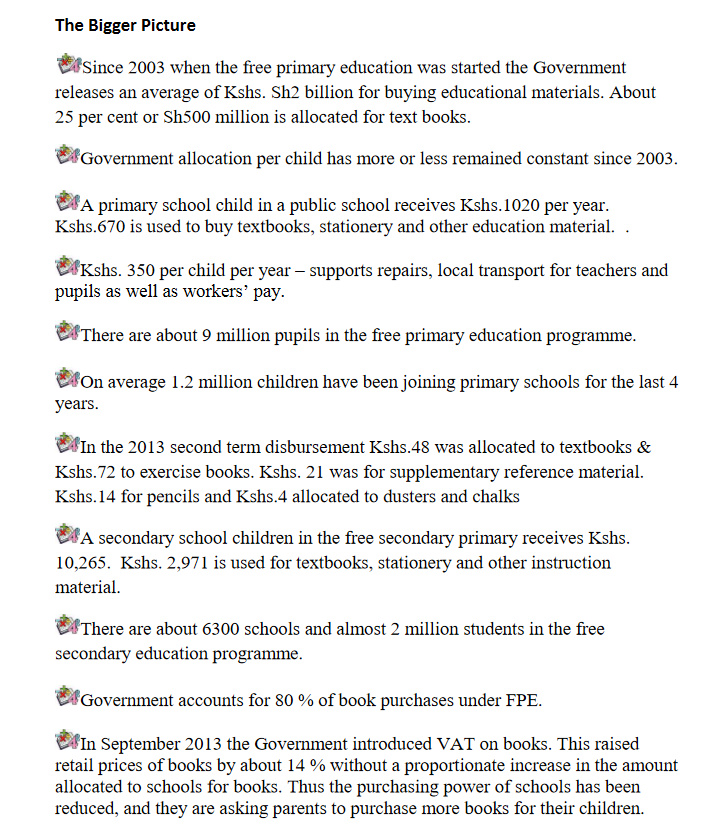Bookshop Business Plan
Bookshop Business Plan

Bookshop Business Plan Bigger Picture
Since 2003 when the free primary education was started the Government
releases an average of Kshs. Sh2 billion for buying educational materials from Bookshop Businesses . About
25 per cent or Sh500 million is allocated for text books.
Government allocation per child has more or less remained constant since 2003.
A primary school child in a public school receives Kshs.1020 per year.
Kshs.670 is used to buy textbooks, stationery and other education material from Bookshop Business.
Kshs. 350 per child per year – supports repairs, local transport for teachers and
pupils as well as workers’ pay.
There are about 9 million pupils in the free primary education programme.
On average 1.2 million children have been joining primary schools for the last 4
years.
In the 2013 second term disbursement Kshs.48 was allocated to textbooks &
Kshs.72 to exercise books. Kshs. 21 was for supplementary reference material.
Kshs.14 for pencils and Kshs.4 allocated to dusters and chalks
A secondary school children in the free secondary primary receives Kshs.
10,265. Kshs. 2,971 is used for textbooks, stationery and other instruction
material.
There are about 6300 schools and almost 2 million students in the free
secondary education programme. Government accounts for 80 % of book purchases under FPE.
In September 2013 the Government introduced VAT on books. This raised retail prices of books in Bookshop Business by about 14 % without a proportionate increase in the amount allocated to schools for books.
Thus the purchasing power of schools has been reduced, and they are asking parents to purchase more books for their children from local Bookshop Businesses.
There are several estimates of the value of the Kenyan publishing industry. One industrial estimate puts the value of the Publishing Industry at Kshs.12 billion, with the share of textbooks being 95%.
Longhorn Publishers the only publicly listed publishing house report a half year
increase in profits from Kshs.16.9m to Kshs.30.1 million for the 6 months ending
December 2013. Growth attributed to expansion of market in Uganda Uganda,
Malawi, Tanzania and Rwanda.
Middle class in this case is as defined by Kenya National Bureau of Statistics as
those earning between Ksh. Sh23, 670 and Ksh 199,999 per month.
Don’t gauge the viability of the Bookshop Business based on the bigger picture only, local conditions in your potential area of operation will determine whether the Bookshop Business can succeed or fail.
Download Bookshop Business Plan / guide here